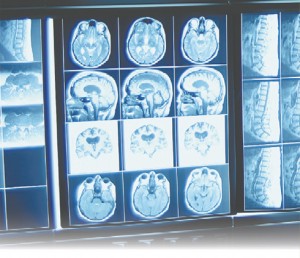 Although concussion is the most common type of traumatic brain injury (TBI), it is often not recognized as a serious health issue by students, parents, coaches, and others. A recent report by the Government Accountability Office (GAO) states that concussions in high school athletes are frequently unreported and not taken as seriously as they should be. The impact of a head injury on a student’s academic performance takes a back seat to the importance of returning to the playing field in many cases. This overemphasis on sports performance as opposed to academic and health can lead to lasting cognitive impairment in student athletes.
Although concussion is the most common type of traumatic brain injury (TBI), it is often not recognized as a serious health issue by students, parents, coaches, and others. A recent report by the Government Accountability Office (GAO) states that concussions in high school athletes are frequently unreported and not taken as seriously as they should be. The impact of a head injury on a student’s academic performance takes a back seat to the importance of returning to the playing field in many cases. This overemphasis on sports performance as opposed to academic and health can lead to lasting cognitive impairment in student athletes.
Teens More Susceptible
Teens are more susceptible to the effects of concussions and they need more time to recover. Studies show the highest incidences of concussions in boys’ high school sports are in football followed by girls’ soccer. The outcome can be lasting brain damage or even death. With participation in youth sports at an all time high, education and awareness about the seriousness of concussions is imperative.
Long-Term Academic Performance Problems
TBI affects student academic performance not only immediately after the concussion but long-term in many cases. Cognitive, physical, and emotional effects that interfere with academic performance and social interactions may be seen long after the concussion. Physical effects include vision problems, dizziness and hearing loss. Cognitive difficulties include problems with logic, thinking, and reasoning. The student may have slower response times, difficulty focusing their attention, short-term and long-term memory loss, and trouble learning new material even though previous learning remains intact. Head injuries can also cause bouts of depression and other emotional problems.
Poor Test Performance
Researchers have found that there are significant effects on students athletes with two or more concussions. When comparing groups who never experienced a concussion with those who recently did and others who suffered two or more, it was found that the group with two or more concussions had the same poor scores as those with recent concussion. The group that was concussion free scored higher than the other two groups. Tests involved memory, concentration, grades, and verbal and math achievement.
How to Be Sure Your Child Receives Adequate Treatment
A recent study published in the journal Pediatrics found that the terminology used when diagnosing the head injury in the hospital made a difference in how the injury was perceived, the length of hospital stay, and follow-up care. It was found that children who were diagnosed with “concussion” were hospitalized for shorter periods and returned to school quicker than children with similar injuries who were diagnosed with “mild traumatic brain injury.” The term “concussion” may not convey the seriousness of the injury. Parents should talk with the doctor if he diagnoses “concussion” instead of “mild traumatic brain injury” to ensure the seriousness of the injury is addressed.
If your child has suffered one or more concussions and you believe they were not given the proper care or discouraged from healing properly before returning to play, contact our office. We will provide a free consultation to determine your legal rights and options.


